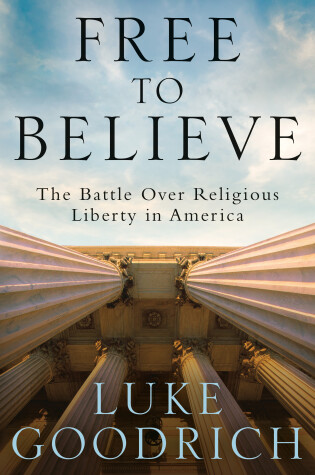Reviewed by Jeff Sexton on
For those "deep inside", they will probably rate this book around 4* or 5*. From that perspective, it is solid but might step on a few toes here and there - and they're not always going to like its slightly-more-pragmatic-than-many-of-them approach to its reasoning.
For the "far outside" crowd, they're probably going to rate this thing much closer to 1*, though the more objective among them might hit it at 2*. There are just so many issues with the book, and this crowd will likely judge them more harshly than I'm about to.
So that is the range I would expect depending on where a particular reader falls on the scale of "deep inside" Christendom - particularly its American version - vs "far outside" of it. Standing at the door, I note that I deduct 1 star immediately the instant I see prooftexting, which is the practice of citing random Bible verses out of context in support of some point or another.
The fact that the prooftexting herein is so rampant - from the ending of the first chapter until nearly literally the last words of the text - and so invidious - several times very obviously taking verses *far* from their original context and meaning by any even semi objective reasoning and often times taking as little as a single word from a particular verse - means that I can't rate this any higher than 3*. And we haven't even gotten to the other issues yet.
The other issues being factual errors and logical fallacies, mostly strawmen but also a few others. This, from a lawyer that boasts of his perfect US Supreme Court record! Factual errors include claiming that a factory is a "typical" work environment in the US. It hasn't been for many years now. Similarly, the author claims that "many" doctors were practicing while abortion was still completely illegal in the US, pre-Roe v Wade, which was decided nearly 37 yrs before the publication of this book. How many professionals - of any stripe - do you know who are still working after 4o years?
The strawmen primarily involve abortion, gay rights, and public spaces - which form 4 of 7 chapters in the biggest section of the book. Here, it becomes evident - particularly in the author's discussion of gay rights - that his closeness to the issue from his professional work becomes as much a hindrance to what he is willing to speak to as a help in pointing out various legal aspects of the circumstances.
It is because of these final two issues that I had to drop my own rating from 3* to 2*.
There is much good to be found here, and at minimum it can help even non-Christians see what prominent Christian legal scholars are thinking. But the issues are simply too rampant to allow me to rank it any higher. Recommended, but should be read with an eye to what is not said as much as what is.
Reading updates
- Started reading
- 17 October, 2019: Finished reading
- 17 October, 2019: Reviewed
